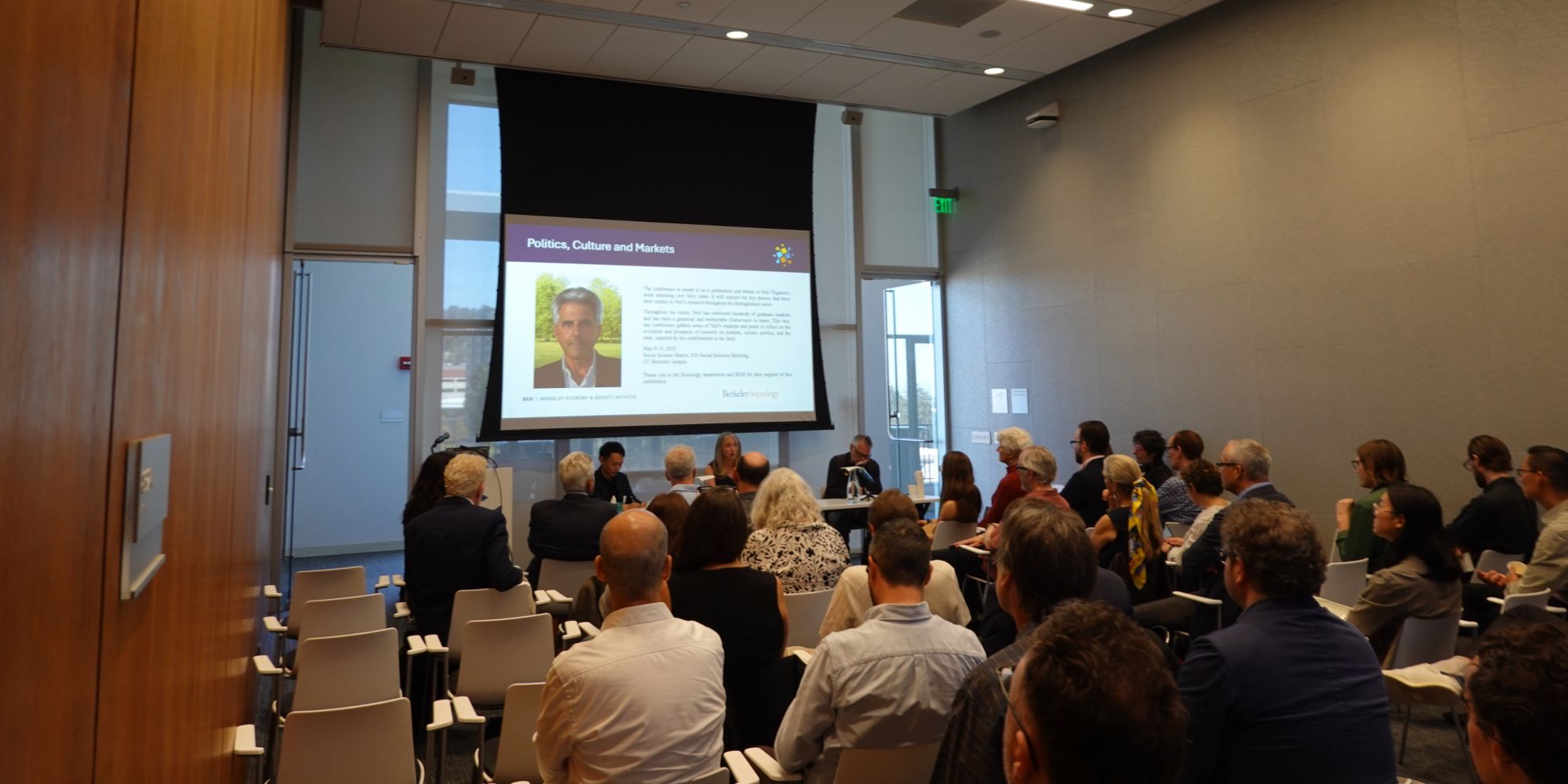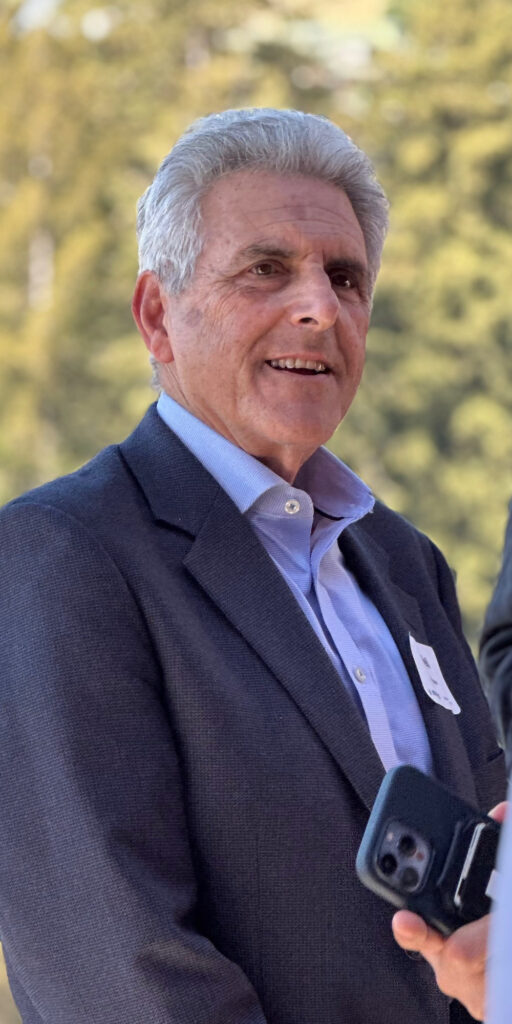
After a career spanning more than 40 years, Neil Fligstein has earned his “permanent sabbatical,” as he’s been calling it.
Earlier this month, BESI and UC Berkeley Sociology hosted a conference in celebration and tribute to Fligstein’s work. Fligstein retired this month from his long-time position as Class of 1939 Chancellor’s Professor of Sociology at UC Berkeley.
A leading scholar in the fields of economic sociology, political economy, and organizational theory, Fligstein’s work develops and applies a sociological view of how new social institutions emerge, remain stable, and are transformed to study a variety of seemingly disparate phenomena, including the history of the American corporation, the construction of a European legal and political system, and the financial crisis of 2007-2009.
Guests hailing from across Berkeley and across oceans gathered the evening of May 9 and most of the day May 10 at Social Science Matrix for the conference fittingly entitled “Politics, Culture, and Markets.” BESI’s director Paul Pierson gave introductory remarks and BESI Technology Network lead Marion Fourcade was among the attendees who paid homage to Fligstein as a colleague and friend.
“There is nothing that Neil loves more than figuring out how to help out,” said Fourcade.
Fligstein has mentored hundreds of graduate students over his career, and his Ph.D. mentees describe him as a generous and memorable doctoral supervisor. The two-day conference highlighted the work of Fligstein’s students and peers, whose presentations underscored how research on markets, culture, politics, and the state has been influenced by Fligstein’s contributions to the field. Topics ranged from the architecture of markets and the rise of finance to the “European experiment” and the new frontiers of economic sociology.

To close out the conference, Fligstein shared stories from his journey through academic life — starting from when he was three years old.
“I didn’t talk until very late,” Fligstein said. “My parents were actually worried at some point.” Thankfully, Fligstein’s father told him that when he did begin talking, it was in complete sentences.
“And as all of you who know me, now I’m not just talking in sentences, but in paragraphs,” Fligstein quipped.
As a teenager in the 1960s, Fligstein recalled he was an activist “and also a big nerd.” When he did a college visit at Reed College, he went to a class that was a seminar. “There were 10 people sitting around talking about ideas,” Fligstein said. “It blew my mind. I walked out of there and I said, ‘This is what I want.’”
An early influence was Marx, who Fligstein called “eye-opening.” Philosophy was another early influence — although after reading Immanuel Kant’s Critique of Pure Reason, he decided maybe philosophy wasn’t for him.
“I don’t care if there are a priori synthetic [propositions],” he recalled telling himself. “I want to do science.”
So, the undergraduate Fligstein turned his attention to cognitive science and sociology. An early favorite was Berger Luckmann’s The Social Construction of Reality, which Fligstein says he still recommends to peers to this day. He ultimately graduated with a bachelor’s degree in psychology.
Fligstein made it clear that it wasn’t just interest in intellectual matters that drew him to a career in academia. “I had a very low threshold for boredom and I didn’t like authority. I said, ‘Well, this professor gig, maybe that’s for me.’”
As a graduate student at the University of Wisconsin, Madison, Fligstein got deep into economic stratification, which Fligstein understands as the precursor to contemporary economic sociology. Armed with robust quantitative skills developed through coursework in econometrics and linear algebra, Fligstein wrote his thesis on how the transformation of Southern agriculture affected South-North migrations in the U.S., using decadal census data.
During his remarks, Fligstein also touched on his work with Doug McAdam on their theory of fields. The authors’ approach is described in their 2012 monograph, A Theory of Fields, which combines insights from institutional theory, social movements theory, and organizational theory to explain how new social spaces are constructed, maintained, and transformed. The core of the book is a sociological view of social action based on symbolic interactionism.
Concluding the day’s proceedings, over which former students and colleagues had hailed Fligstein’s formative influence, Fligstein offered his own praise and thanks to the conference organizers and attendees.
“You have no idea what this means to me,” Fligstein told the attendees. “I will remember this for the rest of my life.”

